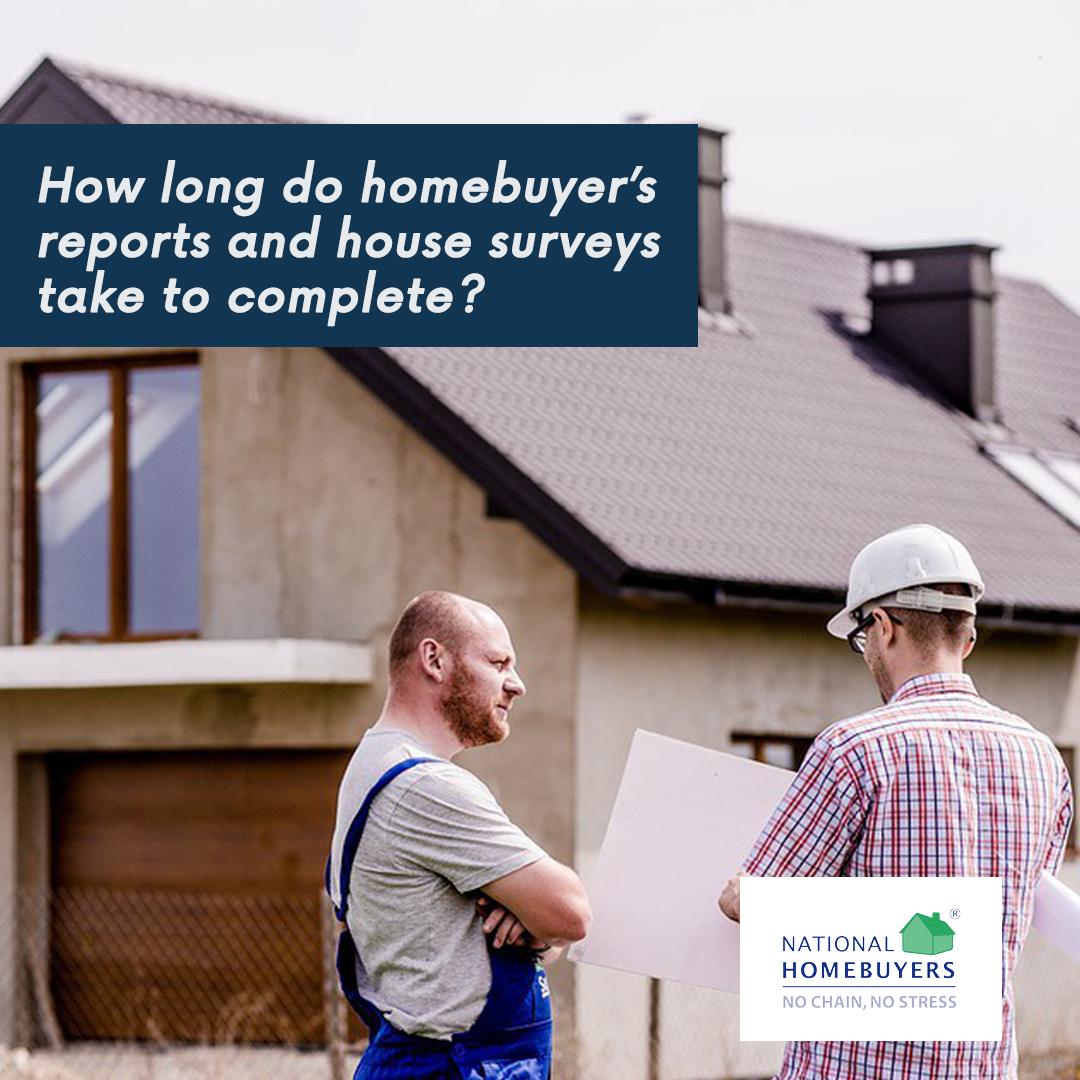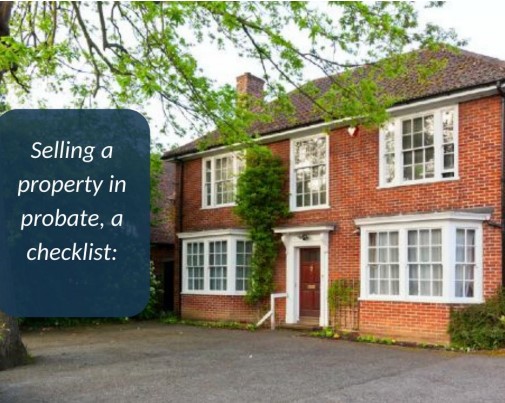How long do homebuyer’s reports and house surveys take to complete?
If you’re buying a house then a homebuyer’s report or house survey is a valuable part of the process, as it could reveal serious issues with the property. It’s important to know how long homebuyer’s reports and house surveys take to complete, as you need to know the findings before contracts are exchanged.
After receiving the report or survey, there may be serious issues that change your decision to buy the property. Or you may wish to adjust your offer price, or stipulate problems are fixed before completing a sale. So, any negotiation will need to happen before the exchange of contracts and the sale becomes legally binding.
In Scotland, the responsibility is with the property vendor to arrange a report, and to have it available to any potential buyers, before the building is listed for sale.
How long do homebuyer’s reports and house surveys take?
The time to complete a homebuyer’s report or house survey will depend on the level of detail and inspection required, and the type of property being assessed. A small new build will take less time than a large five-bedroom property built in the last century.
Although, if you’re looking to purchase a new home directly from the developer, you may want to also invest in a ‘snagging inspection’ which covers issues with workmanship, anything not completed to specification, or areas which brief building regulations.
For a standard homebuyer’s report, a surveyor will typically take around 1-4 hours to complete a physical survey of the property. If you’ve ordered a full structural survey, this will be more in-depth, generally taking between 3-8 hours for the onsite inspection.
Normally you’ll receive the final report approximately 3-5 working days after the visit, or around 8-10 working days for a more detailed survey, but this will vary due to the workload and schedule of the surveyor you have arranged.
It’s important to check timescales with your chosen surveyor, especially if there are backlogs due to other factors, such as a housing boom or stamp duty reductions. Dealing directly with a surveyor will generally be a little quicker than using one via an estate agent. But make sure they’re accredited with a trade association (Rics, RPSA or Sava).
What are the main types of homebuyer’s reports and house surveys?
There are three main types of report you can arrange via a surveyor, with different levels of detail and cost. The Homebuyer Report is most common, and is suitable for standard properties, sitting in the middle of the options available.
A Condition Report (Level One) is the most basic type of survey, and provides an overview of the condition of the property. It will highlight any significant issues including legal problems or urgent defects, but won’t go into detail. The report will use a traffic list rating system to show the condition of the different parts of the property, and it’s generally suitable for relatively new, standard properties which are in good condition.
The Homebuyer Report (Level Two) will add more information onto everything covered in Level One. So, this will include anything which might affect the value of the property, with advice on repairs and ongoing maintenance required. And it should also cover problems including damp and subsidence, along with anything which isn’t meeting current building regulations.
You can also request other information, including a current property valuation, and how much it would cost to rebuild if the property was destroyed beyond repair.
The limitation of a Homebuyer Report is that it’s non-intrusive, so the surveyor won’t be looking under floorboards or behind furniture etc. So, it will be focused on visible, surface-level issues.
The Building Survey (Level three) is also known as a full structural survey, and this is the most comprehensive analysis you can choose.
This will require the surveyor to be more involved in looking at the structure and condition, including checking areas like attics or basements, checking under floorboards, and generally going over the property in detail. The result should be a thorough report covering any defects, advise on repairs and maintenance, and if required, projected costs and timescales for any recommended work.
The process will also include other research conducted away from the property. A full building survey might include old maps, local authority consents, plans, online histories, photos and more. And the end result can be around 15,000 words or more, along with illustrations to explain some of the details.
Typically, a level one Condition Report would be used for a fairly new home in good condition, a Homebuyer Report is suitable for standard properties in a reasonable state, and Building Surveys are recommended for larger properties, those over 50 years old, unusual or unique structures, and any renovation projects or properties in poor condition.
How much do home surveys cost?
The exact cost will vary between individual surveyors, along with the size, condition and value of the property. But it’s possible to give ballpark figures for each level.
Typically, a Condition Report (level one) will cost you around £400-950. If the property is priced around £100,000 to £249,500, you could expect the bill to be around £400-500. But if you’re looking to buy a home valued at more than £500,000, the report is more likely to be at the top end of the price range, around £950.
A Homebuyer’s Report (level two) will start slightly higher due to the level of detail, so you should expect to pay a minimum of £450-500 for homes with a lower valuation. And if you’re thinking of purchasing a million-pound property, then this survey will probably cost you around £1,000.
Finally, the Building Survey (level three) is the most comprehensive and expensive options, with a home under £249,500 probably costing around £700-750 for a surveyor to visit. And when you’re investing more than £500,000 in your purchase, the survey is likely to set you back around £1,500.
How to find a surveyor?
Your estate agent or mortgage lender might recommend surveyors to you. But you shouldn’t just accept their suggestions without doing your own research, and checking what other options might be available.
You may save money by going directly, as the agent or lender may be getting a commission for recommending a surveyor. And as mentioned earlier, it can also take a little longer to organise things if you’re having to pass messages via an estate agent. Plus, there’s the risk that if you use a surveyor linked with your mortgage lender, any problems they find could mean your property is down-valued, and you’re offered a smaller mortgage as a result.
If you’re looking for a surveyor, the most important thing is to check that they’re registered with an appropriate trade association. The main ones to look for are the Royal Institution of Chartered Surveyors (RiCS), who list accredited firms, here, and the Residential Property Surveyors Association (RPSA) which offers a membership verification service, here, along with Sava.
What to do if your house survey shows issues?
You’ll need to go through your home survey thoroughly, making note of any problems or issues highlighted by the surveyor, and decide whether they’re significant enough to impact your purchase or offer.
Smaller issues and future maintenance could be factored into your plans and budgeting, but if the problems need significant investment, then you have some choices.
You could use this as a reason to negotiate a reduction on the property price to match the cost of repairs. Or alternatively, you could ask the seller to fix anything necessary before you exchange contracts.
In the worst case, a full structural survey could discover a major issue which changes your mind about completing the sale of the property. Which is bad news for you, and the vendor, but better than finding out about a problem after you’ve legally committed to ownership.
If you’re struggling to sell your home due to any issues uncovered in a Homebuyer’s Report or House Survey, then why not speak to us for a quick valuation and potential purchase within days.
As specialists in buying houses for more than 15 years, our experience means we understand the issues which may crop up, and we’ll offer you a competitive price for any house, in any condition, and in any location in the UK. Just enter your details here, or call us free on 08000 443 911.






